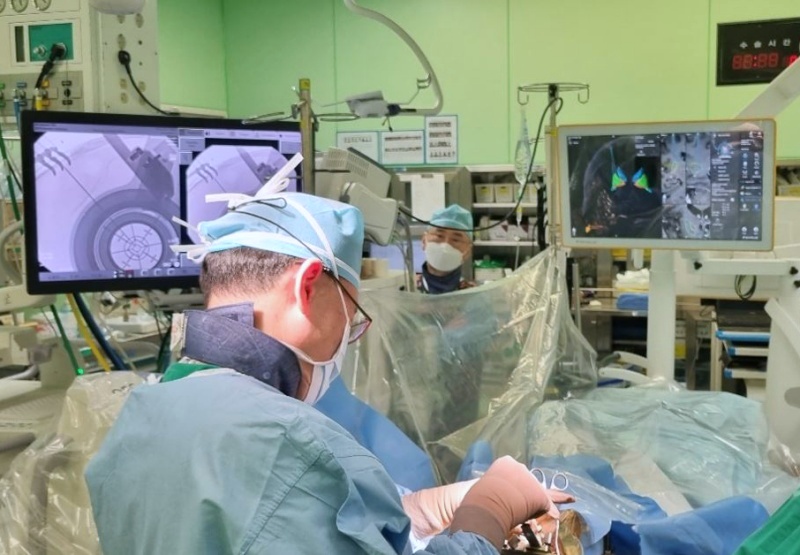
Domestic researchers have confirmed the safety and validity of dopamine treatment based on embryonic stem cells for Parkinson's disease. Shown is a clinical trial of a brain transplant operation using the treatment. (Severance Hospital)
By Park Hye Ri
A domestically developed treatment made from embryonic stem cells has shown clear signs of effectiveness in patients with Parkinson's disease in clinical trials.
The international science journal Cell on Oct. 14 published the results of two phases of a study by a joint research team using the treatment. The research was led by professors Kim Dong-Wook from the Department of Physiology and Lee Phil Hyu from the Department of Neurology at Yonsei University's College of Medicine and professor Chang Jin Woo from the Department of Neurosurgery at Korea University Anam Hospital.
Korea is the first country in Asia and second in the world after the U.S. to start clinical trials on treatment for the disease using embryonic stem cells.
The treatment used in the trials was dopamine cell therapy using human embryonic stem cells. Parkinson's develops when nerve cells degenerate and reduce the release of dopamine by the brain. When 60%-70% of dopamine cells are lost, a patient rapidly loses motor function and is at risk of dementia symptoms in severe cases.
Among the 12 patients who participated in the tests, the six who received high-dose dopamine neuro cell treatments transplants showed average symptom improvement of 43.1%, while the figure for the other six who got lower doses was 27.8%. In motor skills, the former group showed improvement of 26.9% and the latter 21.8% from a year ago.
"One of the patients was a former orchestra conductor who recovered enough about a year after surgery to resume conducting," the team said in a statement. "Another patient who was unable to go out due to muscle stiffness also sufficiently improved a year later to attend a neighborhood festival with friends."
hrhr@korea.kr